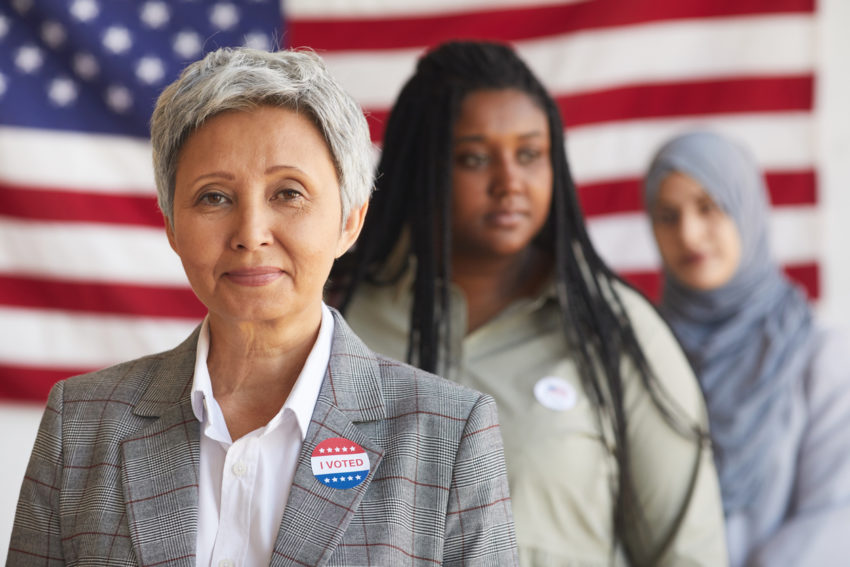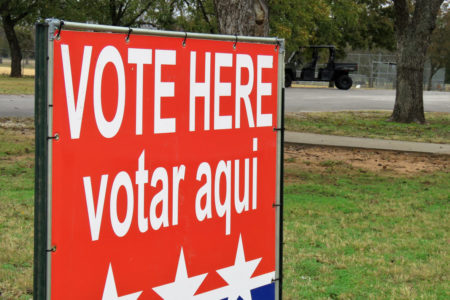
Share On Social!
Fake news. Alternative Facts. Propaganda.
In an election year, disinformation is rampant. Political candidates and organizations may aim to mislead the public about their opponents to get voters in their favor. In recent years, we’ve seen an increase in disinformation from foreign countries seeking to confuse Americans even more.
Latinos are particularly at risk of being victims of disinformation in an election year. Many false claims about voting and candidates take aim at Latino voters.
It’s important that we learn what disinformation is, how it affects Latinos, and how to avoid it this election season.
What is Disinformation?
Disinformation is false information deliberately and often covertly spread in order to influence public opinion or obscure the truth, according to Merriam-Webster Dictionary.
It is different from misinformation, which is incorrect information that may or may not have the deliberate intention to mislead.
Disinformation is not new. It was common to see major propaganda and disinformation efforts distributed by different countries during World War II.
But the rise of social media complicates this.
“Social media are well-suited for fake news dissemination, and social media use has risen sharply,” according to researchers at Stanford University.
This makes it difficult for voters trying to discern what is accurate and what is not.
Disinformation and Elections
During an election year, it is not uncommon to see false information about voting circulating on social media. This false information may specifically target Latinos.
“Disinformation efforts have spread across Facebook, Twitter and more recently WhatsApp, the widely popular messaging app among Latino immigrants, with the intent to misinform Latino communities about election security,” according to The Hill.
Many claims fueled by disinformation revolve around voter fraud or election hacking in an attempt to dissuade voters.
“Much of the disinformation targeting Latino voters has the intent to dissuade their participation in the election, advocates said, including pushing unsubstantiated claims that vote by mail is not secure or the election system can be hacked,” according to The Hill.
This is especially worrisome as Latinos have become the largest demographic of non-white voters.
If a distrust of the voting system prevents Latinos from showing up to vote, it could have massive effects on election results.
“Widespread and systematic attempts to intimidate Latinos, to cast doubt on Latino voters, all of this is a feature of American politics that has been persistent and consistent really since there have been Latinos in American politics,” said Stephen Nuño-Perez, senior analyst at Latino Decisions, according to The Hill.
In addition to disinformation on voting processes, fringe conspiracy theories are circling many social media channels.
“Conspiracy theories around the ‘deep state,’ billionaire Democrat philanthropist George Soros and QAnon have become a constant fixture on Spanish-language YouTube programs, WhatsApp clips and pro-President Donald Trump Facebook groups aimed at a Latino audience,” according to Carmen Sesin of NBC News.
Tracking the origins of disinformation is not always possible, according to media researchers.
“A lot of times, it’s difficult to find out who is spreading this information. We know that there is a network of Facebook pages that tend to work together and they tend to coordinate a lot of these attacks,” said Jacobo Licona, a researcher at Equis Labs who is tracking disinformation on social media that targets Latinos, according to KMVU FOX26.
These disinformation efforts also target Latinos by seeking to erode trust in mainstream Spanish media.
“The idea that Spanish-language news cannot be trusted is being pushed by YouTube channels, like GR8 America, Sin Filtros, that urge viewers to subscribe so they can view Trump campaign events in Spanish and follow interviews that viewers ‘won’t see in traditional news outlets,’” according to Sesin.
Steps to Avoid Disinformation
Disinformation can be found all over social media.
Fortunately, Latino voters can take these steps to avoid fake news in an election season:
- Double check the source of your voting information.
“Be really discerning about where you’re getting information about voting,” said Jessica Weeks, a political science professor at the University of Wisconsin-Madison, according to Poynter. “Figure out who in your county is administering the election and follow their official account. Go straight to the source for those kinds of questions.”
- Don’t share content without examining it first.
“People are too quick to share information they can’t personally vouch for. Especially if you have a strong reaction, use that as a reminder to step away. Stop looking at it, then come back in a few minutes and ask yourself: ‘Do I really know enough to share this?’” according to the Washington Post.
- Know the basic platforms of candidates on your ballot.
“Some of the most popular campaign-related claims are related to candidates’ records and what policies they support. The best way to avoid falling for misinformation about those points is to brush up on some basic facts, ” according to Poynter.
- Correct disinformation when you can.
“Re-sharing the original with a comment can sometimes help to amplify the original source. A better idea, used by some professional fact-checkers, is to take a screen shot of the image or video, and then draw a red X through it and share that,” according to the Washington Post.
- Help out friends and family who have fallen victim to fake news.
“Research shows that, in general, people tend to accept corrections from people they know more than people they don’t. If someone in your life shares misinformation on social media, don’t be afraid to fact-check them. If you want to correct them, be sure to do it in a friendly way,” according to Poynter.
Together, we can all make a difference in preventing the spread of disinformation.
“We all need to become upstanders for facts and give facts a fighting chance,” said Alan Miller, the founder and CEO of the News Literacy Project, according to The Hill. “I think that we need a new sense of personal responsibility around the news and information that we consume, and particularly that we share.”
By The Numbers
142
Percent
Expected rise in Latino cancer cases in coming years



